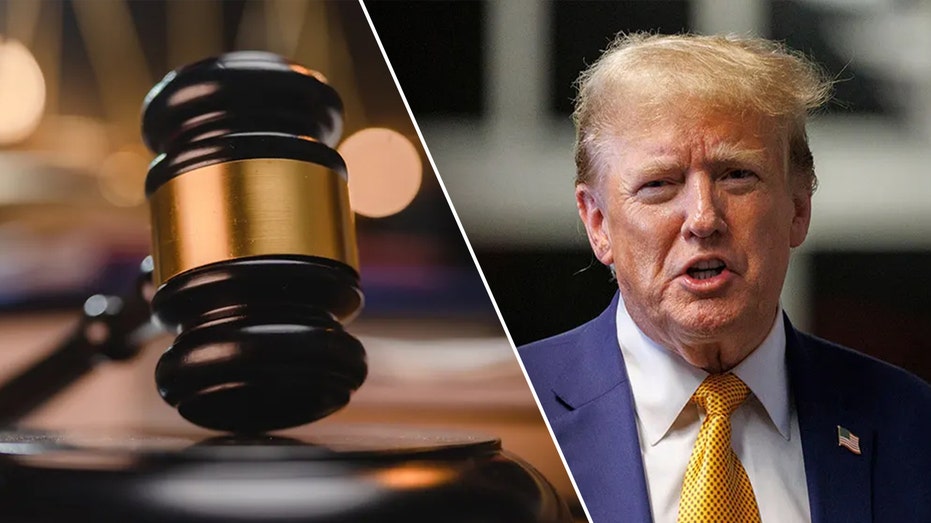Judges vs. Trump: Key Court Battles Blocking the White House Agenda

Sarah Johnson
March 21, 2025
Brief
President Trump's second term faces legal setbacks as federal judges block key policies on transgender military service, USAID, and deportation, intensifying debates over executive and judicial power.
President Donald Trump's second White House term is off to a rocky start, thanks to a series of legal roadblocks thrown up by federal judges. Preliminary injunctions and temporary restraining orders have slowed down key policies, sparking questions about executive power and judicial checks and balances.
Among the most notable rulings, judges have blocked Trump's ban on transgender military service, reinstated core functions of the U.S. Agency for International Development (USAID), and barred Elon Musk's government efficiency group, DOGE, from interfering with federal agencies. Deportation policies have also been frozen, at least temporarily, as courts review their legality.
The administration’s frustration is palpable. White House press secretary Karoline Leavitt lashed out at what she described as "radical left-wing judges" with political agendas, accusing them of trying to undermine presidential authority. "These judicial activists want to unilaterally stop President Trump from deporting foreign terrorists, hiring and firing executive branch employees, and determining the readiness of our troops," she said in a fiery press briefing.
Supporters of Trump in Congress have even floated the idea of impeaching judges who block his policies, while critics fear such rhetoric could destabilize the constitutional balance of power. The debate over judicial independence versus executive authority is heating up, and the stakes are high.
Among the standout cases:
U.S. District Court Judge Theodore Chuang ruled that DOGE's efforts to dismantle USAID "on an accelerated basis" likely violated the Constitution. He ordered the agency's functions partially restored, limiting Musk's involvement unless explicitly authorized by an agency official.
Judge Ana Reyes issued a scathing 79-page ruling halting the Pentagon's enforcement of Trump's transgender military service ban. She criticized the administration's reasoning as "pure conjecture" and argued it caused significant harm to thousands of service members.
Meanwhile, U.S. District Court Judge James Boasberg temporarily blocked the administration from invoking a wartime law to deport Venezuelan nationals, including alleged gang members. Despite the order, at least one deportation flight reportedly proceeded, prompting more questions about the administration’s compliance with court rulings.
In response to these legal setbacks, Trump and his allies have vowed to appeal. Secretary of Defense Pete Hegseth confidently declared, "We are appealing this decision, and we will win." White House adviser Stephen Miller, however, struck a more combative tone: "District court judges have now decided they are in command of the Armed Forces…is there no end to this madness?"
The administration’s legal challenges don't end there. Another high-profile case involves $2 billion in USAID funds that the courts ordered the administration to pay out for completed projects. Legal analysts say these lawsuits are testing the limits of judicial discretion and executive power, with no clear resolution in sight.
Trump himself has joined the fray, calling for Judge Boasberg's impeachment and accusing him of being "crooked" and unelected. The remarks drew a rare rebuke from Chief Justice John Roberts, who reminded all parties of the judiciary's independence.
As the legal drama continues, one thing is certain: the courts are shaping up to be a formidable obstacle for the Trump administration. Appeals are likely to drag these battles out for months, if not years, leaving the nation to grapple with the consequences of a deeply divided government.
Topics
Editor's Comments
The Trump administration's clash with the judiciary feels like a heavyweight boxing match — each round more dramatic than the last. And while the administration accuses judges of overreach, it's hard to ignore the irony of a president who thrives on stretching boundaries. The courts aren't just checking power here; they're effectively rewriting how far the executive branch can go. Also, can we talk about Elon Musk somehow getting tangled up in federal governance? It's like a plot twist no one saw coming.
Like this article? Share it with your friends!
If you find this article interesting, feel free to share it with your friends!
Thank you for your support! Sharing is the greatest encouragement for us.



